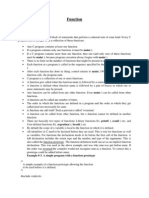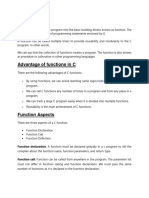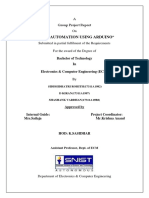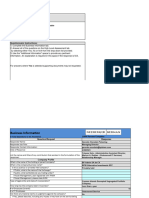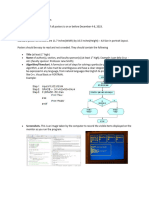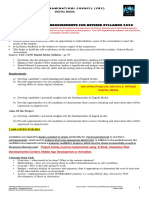0% found this document useful (0 votes)
285 views13 pagesUNIT-3 Notes
This document provides a syllabus that covers:
1. Repetitive control structures like loops, functions, standard functions, scope, parameter passing, and recursive functions.
2. Functions are discussed including user-defined functions, function definitions, arguments, return values, and prototypes.
3. Standard functions like math functions and random numbers are mentioned. Scope, parameter passing styles like call by value and call by reference, and recursive functions are also covered.
Uploaded by
Guruprasad SangaCopyright
© © All Rights Reserved
We take content rights seriously. If you suspect this is your content, claim it here.
Available Formats
Download as PDF, TXT or read online on Scribd
0% found this document useful (0 votes)
285 views13 pagesUNIT-3 Notes
This document provides a syllabus that covers:
1. Repetitive control structures like loops, functions, standard functions, scope, parameter passing, and recursive functions.
2. Functions are discussed including user-defined functions, function definitions, arguments, return values, and prototypes.
3. Standard functions like math functions and random numbers are mentioned. Scope, parameter passing styles like call by value and call by reference, and recursive functions are also covered.
Uploaded by
Guruprasad SangaCopyright
© © All Rights Reserved
We take content rights seriously. If you suspect this is your content, claim it here.
Available Formats
Download as PDF, TXT or read online on Scribd
/ 13































